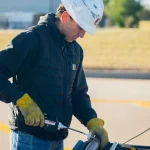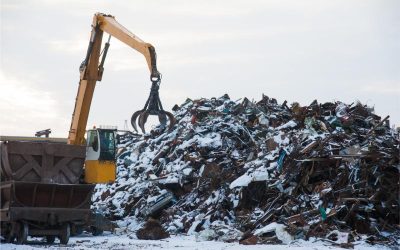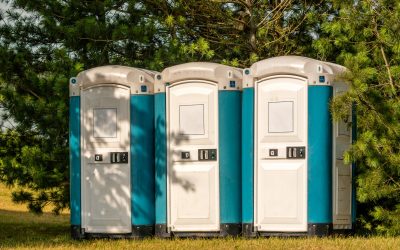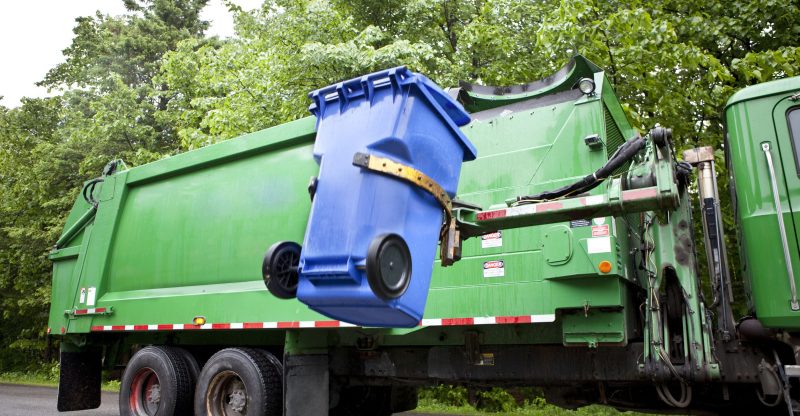When it comes to managing waste on a construction site, choosing the right construction dumpster rental size is crucial. The right dumpster ensures that your cleanup process runs smoothly, saves time, and avoids unnecessary costs.
Estimating the size of the dumpster for your project is not always straightforward, but understanding the factors that influence dumpster size can help you make an informed decision.
Why Choosing the Right Dumpster Size Matters
Choosing the wrong size dumpster for your construction project can lead to several issues, including:
-
Additional Costs: A dumpster that is too small will result in multiple trips to the landfill, leading to increased labor and fuel costs. On the other hand, renting a dumpster that is too large means paying for space you don’t need.
-
Inefficient Waste Disposal: If the dumpster is too small, you may be left with excess waste, which can create an inconvenient situation on-site. Alternatively, an oversized dumpster might take up unnecessary space.
-
Delays in the Project: If waste management isn’t handled effectively, it can cause delays, preventing your crew from maintaining productivity.
By choosing the appropriate dumpster size upfront, you ensure that your construction cleanup is efficient, cost-effective, and aligned with your project’s requirements.
Key Factors to Consider When Estimating the Size of Your Dumpster
There are several factors to take into account when determining the right dumpster rental size for your construction cleanup. Let’s take a closer look at these:
1. The Scope of Your Construction Project
The size and scale of your construction project play a significant role in determining how much waste will be generated. For example:
-
Home Renovations: If you’re renovating a bathroom or kitchen, a smaller construction dumpster rental, such as a 10-yard or 15-yard dumpster, might be sufficient. These projects generally produce a limited amount of waste.
-
Large Construction Projects: If you’re working on a larger-scale construction site, such as building a new house or constructing a commercial building, you’ll need a larger dumpster, typically ranging from 20 to 40 yards.
-
Roofing Projects: A roofing project generates a significant amount of debris, and a larger dumpster, such as a 20-yard or 30-yard option, is often required to accommodate the volume of waste.
2. The Type of Materials You Are Disposing Of
Different materials take up different amounts of space in a dumpster. For example:
-
Heavy Debris: Concrete, bricks, and other heavy construction materials may require a smaller dumpster size, as they fill up more quickly due to their weight. You may need to rent a construction dumpster that can handle this type of material.
-
Lightweight Materials: Materials such as drywall, wood, and insulation tend to take up more space in a dumpster, allowing you to rent a slightly larger dumpster with ease.
It’s important to assess the types of waste your project will generate. Some companies, like Dumpsters INC., offer specialized dumpsters designed to accommodate heavy debris and other specific materials.
3. Estimated Duration of Your Project
The length of time your project will take affects how much waste will accumulate. Longer projects will naturally require larger dumpsters because there will be more debris to manage over time. If your project will span several months, it’s wise to account for that in your dumpster rental size estimation.
If you anticipate that your construction cleanup will generate waste over an extended period, consider getting a dumpster rental that can be emptied regularly. Renting a dumpster for longer periods allows you to keep your site clean and organized, preventing debris buildup and allowing for easier access as the project progresses.
4. Frequency of Waste Generation
Some construction projects produce waste in spikes, while others generate debris consistently throughout the process. For example:
-
Consistent Waste Generation: Projects like home remodels or office build-outs may create a steady flow of waste, and a construction dumpster rental that’s emptied on a regular basis will work well.
-
Periodic Waste Generation: For projects like large demolitions or when a specific phase is completed (e.g., framing or drywall installation), waste may accumulate in larger quantities at specific times. A dumpster large enough to accommodate these bursts of debris may be needed.
5. How Much Space Do You Have On-Site?
Space constraints on your construction site are a significant factor in choosing the right dumpster. Larger dumpsters require more space for placement. Ensure that there is sufficient room to place the dumpster in a location that won’t interfere with the construction process or obstruct access to other essential equipment.
Ensure that the delivery truck has adequate space to drop off and pick up the dumpster. The last thing you want is to rent a dumpster that can’t be delivered due to limited access.
Dumpster Sizes and Their Capacity
To help make your decision easier, here’s a quick overview of the typical construction dumpster rental sizes and the types of projects they’re ideal for:
-
10-Yard Dumpster: Ideal for smaller renovation projects, small home cleanouts, and smaller jobs such as landscaping. It holds about 3-4 pickup truck loads of debris.
-
15-Yard Dumpster: Works well for medium-sized construction projects, like home remodeling, minor roof replacements, and larger cleanouts. It holds about 5-6 pickup truck loads.
-
20-Yard Dumpster: Perfect for moderate construction and renovation jobs. It holds about 7-8 pickup truck loads of waste.
-
30-Yard Dumpster: Suitable for larger construction projects, including full home renovations or significant commercial jobs. It holds about 9-10 pickup truck loads.
-
40-Yard Dumpster: Ideal for large-scale commercial construction and extensive demolition projects. It holds about 12 pickup truck loads of debris.
Final Thoughts
Choosing the correct construction dumpster rental size is essential to ensuring an efficient and cost-effective cleanup process for your project. By considering factors such as the scope of your project, the types of materials being disposed of, and the estimated duration of the project, you can make a more accurate decision about which dumpster size is best for your needs.








